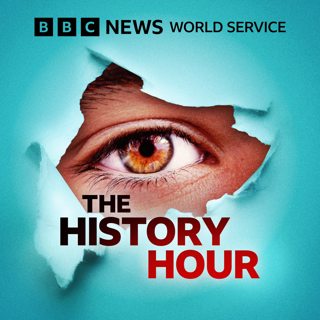
The 'Braceros' - America's Mexican Guest Workers
From 1942 to 1964 the US actively encouraged American farmers to hire tens of thousands of migrant workers to come to work legally from Mexico - they were known as 'braceros'; also, when Moscow invited thousands of foreign students to attend an International Youth Festival in the former USSR; a witness to the funeral of the Duke of Wellington; plus Arafat's final weeks and why was JKF's killer allowed to defect to the Soviets?Photo: A group of Mexican Braceros picking strawberries in a field in the Salinas Valley, California in June 1963 (Getty Images)
24 Nov 201850min

Japanese Murders in Brazil
How Japanese immigrants in Brazil fell out with each other after the end of the WW2, how Britain helped to get disabled people on the road in the 1940s plus life for Jews under Imperial Russia, the victims of Brazil’s military dictatorship in the 1970s and the American embassy hostage crisis in Tehran.
17 Nov 201850min

The End of World War One
11th November 1918 saw the end of a four year war that had killed an estimated 20 million soldiers and civilians around the world. We hear eyewitness accounts of the conflict which was fought by many nations, on many continents. The historian, Professor Annika Mombauer joins Max Pearson to discuss the devastating war that changed the world. Photo: Crowds in London celebrate the signing of the Armistice on 11th November 1918 (Topical Press Agency/Getty Images)
10 Nov 201851min

When Russia's Richest Man Was Jailed
Russia's struggles with big business, when Nigeria struck oil, why Maximilian Kolbe was made a saint, the London arrest of Chilean dictator Augusto Pinochet and Desmond Tutu.Photo: former head of Yukos Mikhail Khodorkovsky leaving the courtroom in Moscow, Russia, September 22, 2005. Credit: Sovfoto/UIG via Getty Images
26 Okt 201850min

The Nazi Black Book
The Nazi black book, a list of those to be arrested and dealt with if Germany occupied Britain, privation in wartime and Allied-occupied Austria, racial tension in 1940s Sweden, plus how Britain's Labour party moved against hereditary peers in the House of Lords in the 1990s.
26 Okt 201849min

When Belgium Banned Coca Cola
A strange illness strikes Belgian teenagers, Brazil's forgotten Amazon war, diverting Mount Etna's lava, arguments over aid and trade in the UK, and the 1973 oil crisis.(Photo: A poster saying 'out of order' is stuck on a Coca Cola vending machine in Mouscron, Belgium in 1999. Credit: Philippe Huguen/AFP/Getty Images).
20 Okt 201851min

The Street Battle That Rocked Brazil
In October 1968, students from two neighbouring universities in the centre of São Paulo clashed in a battle which left one dead and many injured. We hear how the so-called 'Battle of Maria Antônia' drove Brazil deeper into a military dictatorship which is still controversial to this day. Plus, a pioneering race relations case in Britain during World War 2, the invention of artificial skin and fashion in the Soviet Union.Photo: the 'Battle of Maria Antonia', São Paulo, 1968. Credit: Agência Estado/AFP
6 Okt 201850min

The Arnhem Parachute Drop
Operation Market Garden - the failed attempt to end the war against Hitler; plus, a deadly nuclear accident in Brazil, the film of the Battle of Algiers, the last regular steam train to run in Britain and one of the Cuban Five jailed in America for spying for Fidel Castro.(Photo: Allied planes and parachutists over Arnhem, Getty Images)
22 Sep 201850min






















